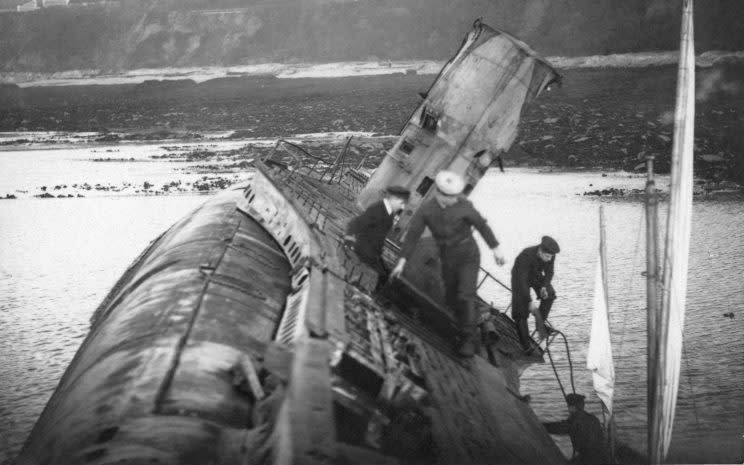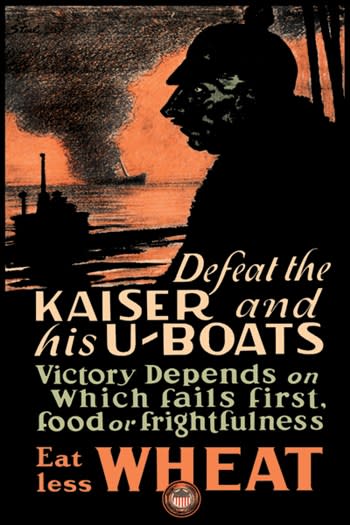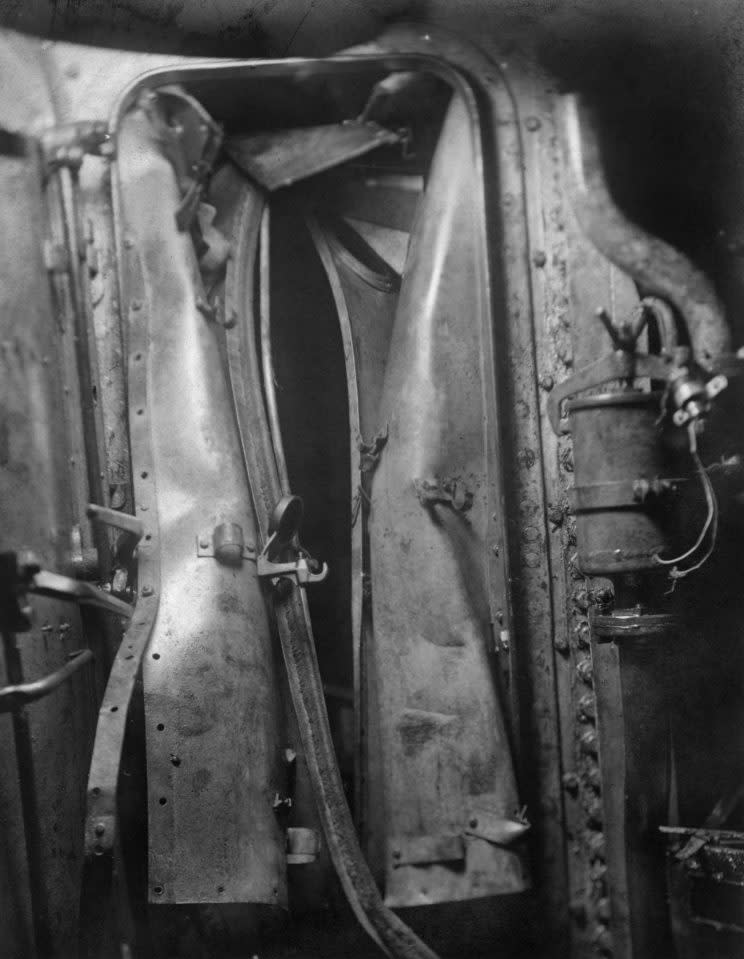Never before seen images of WWI German submarines stranded on English coast revealed

Unseen photographs of German World War One submarines washed up on the English coast have been published for the very first time.
Historic England has revealed the remarkable images to mark the centenary of Germany’s declaration of unrestricted submarine warfare on Britain.
The submarines, or U-boats, shown in the photos reveal submarines that have beached on the Cornish coast after the end of the war. The vessels were on their way to be sunk as gunnery targets.
MORE: Drivers spend four days a year looking for parking spaces
MORE: Falcons on a plane! Saudi Sheik flies 80 birds on a passenger airplane

But once stripped of their engines, the submarines were difficult to tow and occasionally sank or washed up on Britain’s beaches, as in the case of these U-boats, pictured in Falmouth.
The photos date back to 1921.
The German declaration of total war on British and allied shipping by the submarines was made on February 1, 1914.
It meant German U-boats were given license to attack and torpedo ships without warning.

It was part of a policy to strangle the UK into surrendering by cutting off military and civilian ships carrying much needed supplies, as the war approached its fourth year.
All ships trading with Britain were seen as targets by the Imperial German Navy, including those from neutral countries such as Norway, Denmark and the United States.
The targeting of American ships ultimately brought the United States into the war in April 1917, said Historic England. Hospital ships were also targeted.
The deadly policy was not without many successes.

During 1916, 431 British ships were sunk by German U-boats worldwide but in 1917 following the declaration of unrestricted submarine warfare, that nearly tripled to 1,263.
“Germany’s tactic led to devastating losses for many nations but it also horrified the world,” said Historic England’s Roger Bowdler.
“It was seen as uncivilised, ungentlemanly and ultimately brought the might of the United States into the war.
“By commemorating this day we can better understand its consequences and remember the many people who lost their lives in this way.”

They were taken by the naval officer Jack Casement, a relative of the humanitarian activist, Irish nationalist and poet, Sir Roger Casement, on what was probably his last official posting before he retired.
Casement’s family have donated the pictures to the Historic England archive.
A third of the Submarine Service’s total personnel lost their lives during the First World War – the highest proportion of any branch of the armed services.

A monument to those who lost their lives in the German attacks was unveiled at Temple Pier in Central London in 1922.

 Yahoo News
Yahoo News 


